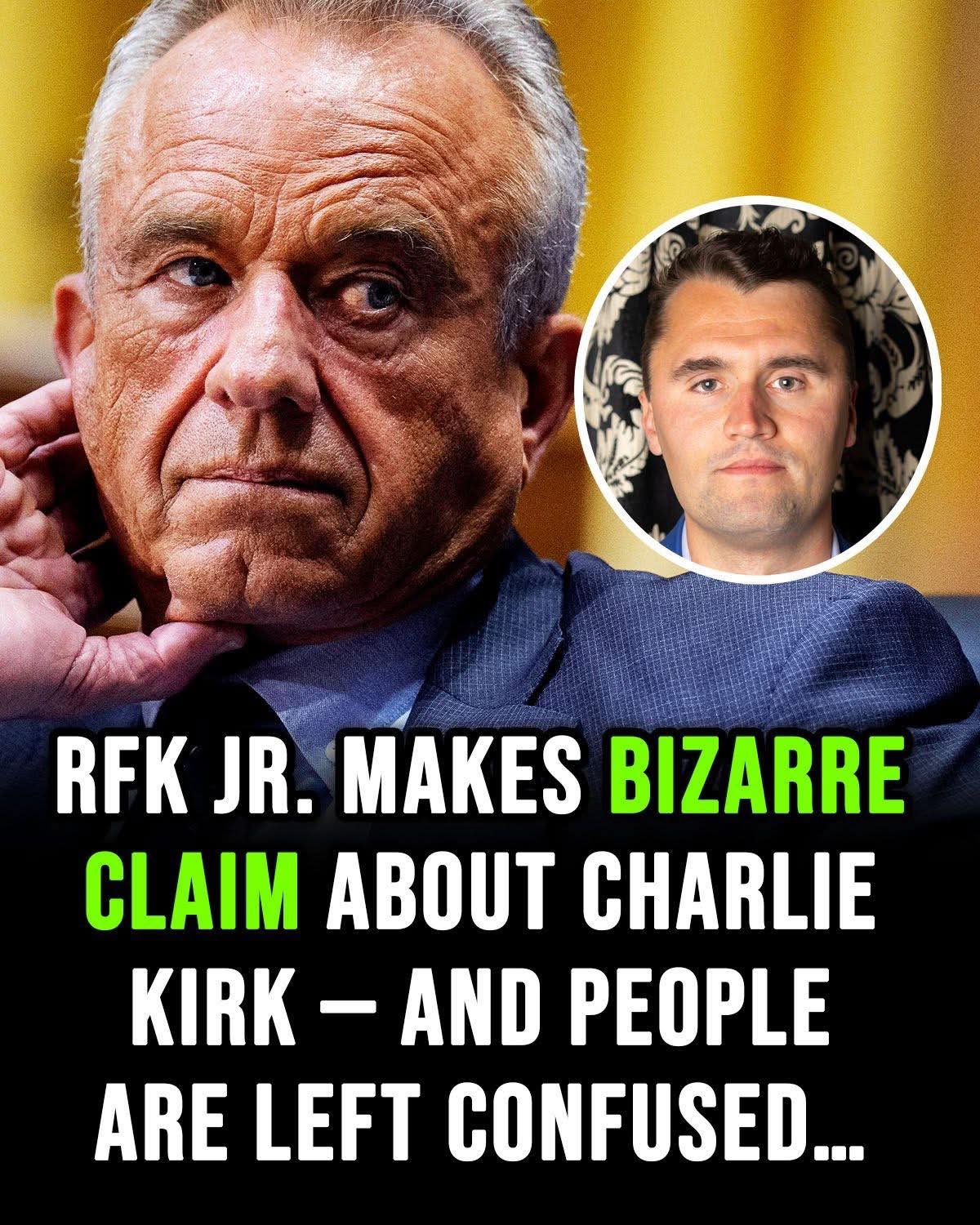Hundreds gathered at the Kennedy Center in Washington, D.C., on Sunday to pay tribute to Charlie Kirk, the conservative commentator and activist who was fatally shot during an appearance in Utah just a week earlier.
The memorial drew a wide range of political figures and public supporters. But while the event was meant to celebrate Kirk’s life and influence, it quickly became the subject of online debate—largely because of a puzzling anecdote shared by Robert F. Kennedy Jr., the Secretary of Health and Human Services in Donald Trump’s administration.
Kirk, the 31-year-old founder of Turning Point USA, was killed at Utah Valley College while speaking at a student event. After a tense 33-hour manhunt, authorities announced that 22-year-old Tyler Robinson had turned himself in. Across the country, vigils and memorials have sprung up to honor Kirk, who in recent years had become a prominent conservative voice. Another large service is scheduled for September 21 at State Farm Stadium in Glendale, Arizona, where former President Donald Trump is expected to attend.
The Kennedy Center memorial, however, became dominated by headlines about Kennedy’s speech.
RFK Jr. Calls Kirk His “Soulmate”
When Kennedy took the stage, he began with a personal story about his niece, noting that she had recently been accepted to study abroad. He then pivoted to speak about Kirk’s influence on young people.
“There are millions and millions of kids around the country who he inspired who now want to live with Charlie Kirk,” Kennedy said. “And that’s a great thing for our country.”
But it was what came next that made waves online. Kennedy shared a memory of when he claimed he first met Kirk, saying it happened in 2001.
“I met Charlie for the first time in July of 2001,” Kennedy said. “I went on his podcast, and I think we approached each other with a lot of trepidation at that time. But by the end of the podcast, we were soulmates. We were spiritual brothers. We were friends. And over the next couple of years, our friendship blossomed.”
The statement stunned listeners. Kirk was born on October 14, 1993, which would have made him only eight years old in 2001. His podcast, The Charlie Kirk Show, did not launch until nearly two decades later, in 2020.
The Internet Quickly Responds
Within minutes, social media erupted. Users pointed out the glaring discrepancy between Kennedy’s story and reality.
“In 2001, Charlie Kirk was eight years old,” one user posted bluntly.
Another wrote, “RFK Jr. claiming he bonded with 8-year-old Charlie Kirk on a 2001 podcast that didn’t exist yet? That’s not a soulmate story, it’s a straight-up hallucination.”
The reactions piled up, with critics arguing that the bizarre anecdote was part of a larger pattern of untruths and exaggerations in public life.
“What’s up with constant lying in this administration? The lies are easy to disprove,” another user said.
One added, “Lies, lies, and more lies from the Right. And honestly, RFK Jr. might actually believe this happened.”
Supporters Push Back
Not everyone interpreted Kennedy’s remarks so harshly. Some suggested it was an innocent slip of the tongue.
“He meant 2021. People make mistakes,” one supporter wrote. “I’ve made the same kind of verbal miscue.”
Another chimed in: “This is just a misspeak during an emotional speech. Obviously he didn’t mean 2001.”
Kennedy’s defenders argued that the memorial should not be overshadowed by a single mistaken date. They emphasized that the purpose of the event was to celebrate Kirk’s life and legacy, not pick apart every phrase.
The Bigger Picture
Charlie Kirk’s death has already shaken conservative politics. At only 31, he had built Turning Point USA into one of the most prominent youth conservative organizations in the country, influencing debates on campuses and within the Republican Party. His speeches often drew large, passionate crowds, and his critics and supporters alike agreed he was a polarizing but impactful figure.
The controversy over Kennedy’s remarks highlights the challenges of public tributes in the age of instant reaction. A single misstatement, whether an honest error or something more careless, can dominate coverage and spark endless speculation online. What might once have been dismissed as a simple slip now becomes a viral talking point, distracting from the broader intent of the speech.
Meanwhile, preparations are underway for Kirk’s funeral in Arizona, which is expected to draw a much larger crowd than the D.C. memorial. President Trump is slated to attend, and other high-profile conservative leaders are expected to speak. That service will likely serve as the central gathering point for his supporters to grieve, celebrate his life, and reinforce his role within the movement.
Remembering Kirk Amid Controversy
For those in attendance at the Kennedy Center, the focus was still largely on Kirk’s influence and legacy. Attendees shared personal memories of his tireless work on college campuses, his ability to connect with young audiences, and his knack for sparking debate on issues of free speech and conservative values.
But the RFK Jr. moment remains a reminder of how memorials, especially for high-profile figures, often take on a life of their own in the digital age. Whether Kennedy’s timeline error was simply a slip or a deeper lapse, it has become part of the story of Kirk’s farewell—an unexpected twist in what was meant to be a solemn occasion.
In the days to come, the conversation may shift back to Kirk himself—his achievements, his controversies, and the void his sudden death has left in American political life. But for now, the chatter around Kennedy’s comments lingers as another strange subplot in an already turbulent chapter of American politics.
